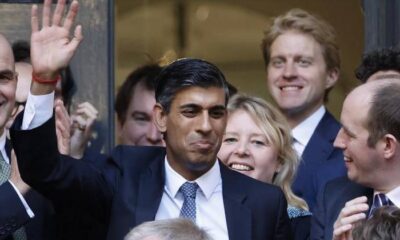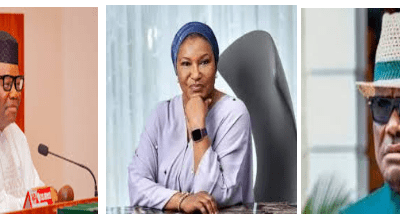Global Issues
From Kenya to Nigeria and Beyond: A Journey Towards Reformation and Revolution -By Ajiboye Amos Olakunle
Kenya’s call for change is a wake-up call for Nigeria and other African nations. The demands for accountability, transparency, and good governance must be heard and addressed. African governments must prioritize their citizens’ needs and work towards creating a more just and equitable society. The time for change is now.

The streets of Kenya have been vibrant with protests and demonstrations as citizens demand accountability from their government. This widespread outcry underscores the power of a united populace calling for change. As Nigeria and other African nations observe these events, an essential lesson emerges: prioritize the people and eliminate corruption.
Origins of the Kenya Finance Bill Protests
The protests surrounding the Kenya Finance Bill can be traced back to the 2023 anti-government demonstrations that erupted after the passing of tax reforms in the “Kenya Finance Bill 2023.” These protests, led by the former prime minister, resulted in six fatalities and numerous injuries. Initially, the movement began on social media platforms such as TikTok and X (formerly Twitter), but it soon escalated to physical protests on June 18, 2024, spearheaded by young people and human rights activists. By June 20, 2024, the protests had spread nationwide, with police intensifying their crackdown on demonstrators.
The 2024 Finance Bill is part of a series of tax reforms based on a Medium-Term Revenue Strategy (MTRS) introduced by the Kenyan government in 2023 through the Ministry of National Treasury and Economic Planning. The MTRS aims to increase Kenya’s tax-to-GDP ratio from 13.5% to at least 20% between 2024 and 2027, with estimates from the IMF suggesting a potential tax-to-GDP ratio of 25%. Recommendations from the MTRS influenced details of the Finance Bill 2024, including an annual circulation tax for all motor vehicles and revised excise duties on petroleum products.
Kenya’s Struggle with Corruption and Poor Governance
Kenya has long struggled with corruption and poor governance, issues that have stifled development and perpetuated poverty. Embezzlement, nepotism, and cronyism are rampant, leading to widespread disillusionment and anger among citizens.
The Spark that Ignited the Protests
The recent protests were fueled by various factors, including the government’s handling of the COVID-19 pandemic, high living costs, and the perceived arrogance of the ruling class. The tipping point came when the government announced plans to impose new taxes on ordinary citizens while exempting large corporations and wealthy individuals.
The People’s Demands
Protesters in Kenya are calling for substantial change, not just superficial reforms. Their demands include:
• Addressing corruption and ensuring accountability
• Improving the economy and creating jobs
• Enhancing access to quality education and healthcare
• Promoting transparency and good governance
• Respecting human rights and the rule of law
Lessons for Nigeria and Africa
Nigeria, in particular, can draw parallels with Kenya’s situation. Corruption and mismanagement have long plagued Nigeria, hindering development and perpetuating poverty. The Nigerian government must learn from Kenya’s example and prioritize its citizens’ needs.
To avoid similar unrest, African governments must:
• Listen to their people and address their concerns
• Foster transparency and accountability
• Prioritize basic needs, including education, healthcare, and economic opportunities
• Embrace good governance and implement inclusive policies
• Respect human rights and uphold the rule of law
The Consequences of Ignoring the People’s Demands
Ignoring citizens’ demands can lead to protests and unrest, as seen in Kenya. The continent has witnessed numerous uprisings and revolutions, from the Arab Spring to the Sudanese Revolution, highlighting that the patience of the people is finite.
The Way Forward
African governments must take concrete steps to address citizens’ demands and prevent further unrest. This includes:
• Implementing policies that promote economic growth and development
• Strengthening institutions and ensuring accountability
• Enhancing access to quality education and healthcare
• Promoting transparency and good governance
• Respecting human rights and the rule of law
Conclusion
Kenya’s call for change is a wake-up call for Nigeria and other African nations. The demands for accountability, transparency, and good governance must be heard and addressed. African governments must prioritize their citizens’ needs and work towards creating a more just and equitable society. The time for change is now.









